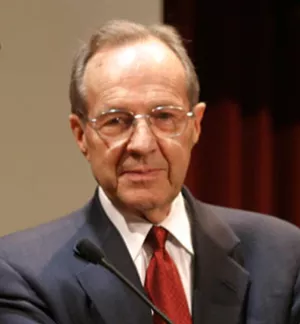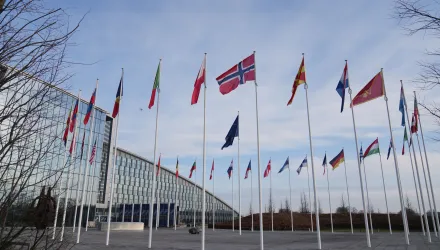Messrs. Cohen and Perry served as secretary of defense under President Clinton from 1997–2001 and 1994–1997, respectively. Mr. Cohen is now the CEO of The Cohen Group and Mr. Perry is a senior fellow at the Hoover Institution.
The current debate on the U.S.-Central America-Dominican Republic Free Trade Agreement, or CAFTA, has largely focused on trade, labor and sugar. While we firmly believe that it will advance the interests of U.S. and Central American-Dominican farmers, workers and industries, CAFTA has even wider and more vital implications for advancing security, stability and democracy in our own neighborhood.
Just 15 years ago, civil wars, communist insurgencies and military dictators characterized much of Central America. The U.S. actively supported the transition from insurgency and military rule to democracy. Today, democratic elections have become the norm in each CAFTA country, and progressive leaders are pursuing a second generation of democratic reforms that involve the strengthening of institutions that ensure transparency and uphold the rule of law.
As democracy has taken hold, the U.S. has worked with the region to promote cooperative systems to address the largely transnational security threats the region faces — from the 1987 Esquipulas II agreement that defines the peace between these countries to the 1995 Central American Democratic Security Treaty, which promotes a more integrated security structure.
While progress has been impressive for these six countries over an incredibly short period, major challenges and threats to their security — and ours — cannot be ignored. Transnational gangs and terrorists, arms and drug trafficking, and exceptionally high crime rates have taken root, exacerbated by continuing poverty and the lack of economic growth. Nearly half of Central Americans and Dominicans live in poverty.
Security and democracy cannot be taken for granted. Several of Central America's neighbors in South America are experiencing a resurgence in civil conflict, authoritarian rule and even flirtations with armed Marxists. Rejecting CAFTA would stunt Central America's growth prospects and make the region more susceptible to a new and negative tide. Multilateral bodies such as the OAS, and mechanisms such as the Summits of the Americas — while valuable — fail to provide a cooperative framework grounded in tangible national interests the way a regional FTA would. This is especially apparent in the textile and apparel sector, Central America's second-largest source of jobs, where the FTA would make all CAFTA countries including the U.S. more competitive and reduce the loss of jobs and capital to other regions such as China.
Security, stability and an environment conducive to growth depend on effective government institutions. Not coincidentally, such institutions are the basic tools of participatory democracy. It is precisely in countries where democratic institutions are emerging, but have not yet been fully internalized, that agreements like CAFTA can play their most significant role. Discipline in areas such as dispute settlement, government procurement, investment and transparency directly require mechanisms to enhance accountability in day-to-day governance. Such mechanisms narrow the opportunities for corruption and lawlessness. They also provide a road map for further democratic institution building.
The U.S. and the CAFTA countries are linked by geography and history, by our peoples, and by trade and investment. CAFTA offers a pivotal opportunity to grow our partnerships, as well as to promote the economic growth and reform that will lock in the remarkable political achievements of the 1990s. CAFTA is too important for our neighbors — and for us — to let pass by.
Please see the pdf below for full text of this article:
Perry, William and William Cohen. “We Have to Have CAFTA.” The Wall Street Journal, April 26, 2005



